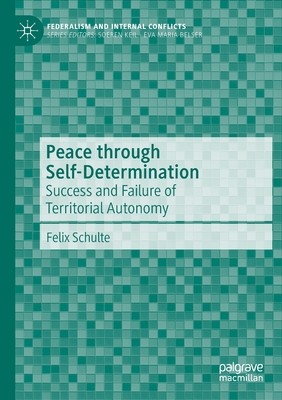
- Išsiųsime per 10–14 d.d.
- Autorius: Felix Schulte
- Leidėjas: Palgrave Macmillan
- ISBN-10: 3030375897
- ISBN-13: 9783030375898
- Formatas: 14.8 x 21 x 1 cm, minkšti viršeliai
- Kalba: Anglų
Atsiliepimai
Aprašymas
Bringing together comparative politics, conflict research and social psychology, this book presents a novel theory to explain the consolidation outcomes of post-conflict autonomy arrangements. It builds on Social Identity Theory and identifies a successful process of ethnic recognition as the key prerequisite for peaceful interethnic cohabitation through territorial self-governance. As this process is highly context-dependent, the study identifies relevant structural and actor-centered factors and analyzes their occurrence in the consolidation periods of nineteen autonomy arrangements worldwide using Qualitative Comparative Analysis (QCA). The author concludes that elites accept autonomy reforms if they promise a high degree of self-determination and, at the same time, ethnic recognition is not hindered by horizontal inequalities. Bargaining efforts succeed within inclusive institutions involving non-nationalist parties and international organizations. Autonomy reforms fail if the degree of self-rule offered is too low and strong inequalities generate new grievances. Autocratic rule, nationalist parties, and a lack of international attention provide a breeding ground for further centrifugal activities. In-depth case studies on South Tyrol and the Chittagong Hill Tracts provide further evidence for the theoretical models.
- Autorius: Felix Schulte
- Leidėjas: Palgrave Macmillan
- ISBN-10: 3030375897
- ISBN-13: 9783030375898
- Formatas: 14.8 x 21 x 1 cm, minkšti viršeliai
- Kalba: Anglų




Atsiliepimai